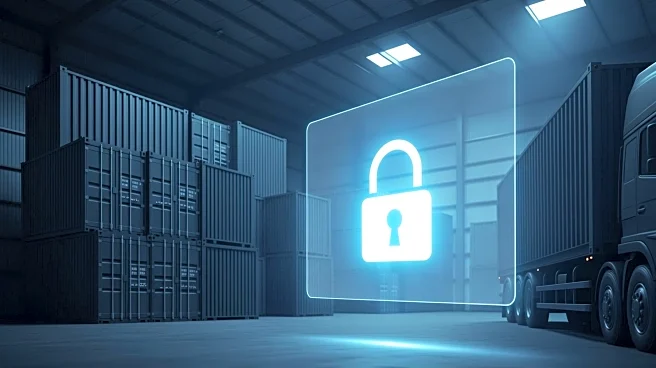What's Happening?
Financially motivated cyber gangs are collaborating with organized crime to execute large-scale cargo thefts, utilizing remote monitoring tools to infiltrate trucking carriers and freight brokers. According to Proofpoint, these cyber thieves have been
active since June 2025, employing tools like ScreenConnect and SimpleHelp to conduct reconnaissance and steal credentials. The logistics industry faces significant losses, with cargo theft accounting for an average of $34 billion annually. The National Insurance Crime Bureau reported a 27% increase in cargo theft losses in 2024, with projections indicating a further 22% rise in 2025. The Department of Transportation has sought public input on strategies to combat this growing threat.
Why It's Important?
The collaboration between cybercrime and organized crime poses a substantial threat to the logistics industry, potentially disrupting supply chains and increasing costs for businesses. The use of legitimate software to evade detection highlights vulnerabilities in cybersecurity measures, necessitating enhanced security protocols. The financial impact is significant, with billions lost annually, affecting stakeholders across the industry. As cargo theft becomes more sophisticated, companies must invest in robust cybersecurity solutions to protect their operations and mitigate losses.
What's Next?
Industry leaders and government agencies are likely to intensify efforts to combat cargo theft, focusing on improving cybersecurity measures and developing strategies to safeguard supply chains. The Department of Transportation's request for comments may lead to new regulations or initiatives aimed at reducing theft incidents. Companies may need to adopt advanced security technologies and collaborate with cybersecurity experts to address vulnerabilities and protect their assets.
Beyond the Headlines
The rise in cargo theft during the COVID-19 pandemic underscores the need for resilient supply chains and adaptive security strategies. As global trade continues to evolve, the logistics industry must prioritize cybersecurity to prevent disruptions and maintain operational integrity. The ethical implications of using legitimate software for malicious purposes highlight the need for ongoing vigilance and innovation in cybersecurity practices.
















